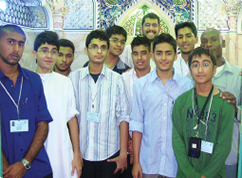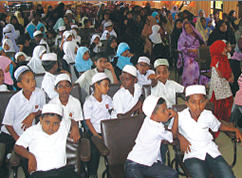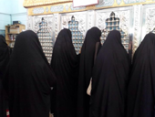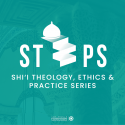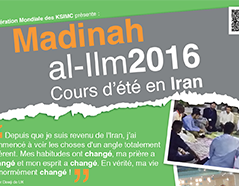On the occasion of the Shahadat anniversary of Ameer al Mo’mineen (as), our esteemed scholar, Shaykh Murtadha Alidina outlines for us the characteristics that enable us to become people whose company the Imam (as) himself yearns for.
Tarbiyah Curriculum Teaching Guide
For every lesson in the Tarbiyah curriculum, there will be a teaching guide. A template of the teaching guide can be downloaded here.
The important elements of the teaching guide are as follows.
1. 1= Module no.
C= Age Band
07= Lesson no.
2. Title = Lesson topic
3. Lesson Objectives – These should be achieved by each student and verified by the teacher by the end of the class.
4. Key Words – The teacher should familiarise the students with these words while explaining the lesson.
5. Before the class, I need to have the following items ready – Check for all the resources from online resources bank and madrasah media/resources in charge.
Alternative activities - If there is an alternative activity given and the teacher decides to use it then the resources required for that activity will be found here.
6. The time it might take - Each activity has been allotted an approximate time required. It’s just a guide for teachers and no obligations as long as the teacher ensures to complete/achieve all the Lesson Objectives in class time.
7. The activities that will help me achieve my lesson objectives - Here teachers will find all the activities and guidance to conduct these activities. Each activity helps to achieve the learning objectives. They have been designed and structured in a way that they keep the class interesting and learner-centered with loads of hands-on activities, games, and demonstrations to motivate and inspire children towards the teachings of ahlulbayt a.s, inshallah.
Abbreviations/Elements under this heading: T = Teachers, S = students, LC = Learner centered, TC= Teacher centered, clip/ worksheet resources (look for this in the online resource to download/print).
8. Writer’s Notes - Under this section teachers will find assistance with potential points to be discussed for a specific activity. Reading this will help explain the goal more clearly.
9. Lesson Division (Skills I am working on) -The lesson has been divided into 3 different parts i.e. ‘1. Warm up/Starter, 2. Topic Discussion, 3. Prevention/Practical activity - discussion and each part deals with achieving either 1 or 2 objectives of the lesson.
10. Alternative/ Extension ACTIVITIES - Here Teachers will find any extra or alternative activity that the writer found interesting to give the teachers substitute/different options to the lesson activities as MCE believes there are many different ways we can achieve the objectives of a lesson.
11. Higher Level - If teachers observe in their class particular students that have a higher level of understanding on the topic being discussed and have achieved the lesson objectives with little or no difficulty then the teacher can assign the students to complete the higher level activity. Teachers will find activities and suggestion and worksheets to be completed by these students here.
12. Possible Homework - MCE has added suggestions on homework for students to apply what has been learnt in class at home and/or reinforce the topic been taught. It is up to the teacher’s discretion to give the homework or not.
13. Additional Resources - We found many valuable, tried and tested resources specific to the topics covered. We decided to add them to our resource bank and reference them in the TG’s. These resources are not a part of the activities and instructions provided but are extra resources that were found relevant to the topic. The teachers if decides to make an independent LP can use these resources if required.
Related News
My dream to relive precious moments in the tranquil land of Iran near the blessed personalities of Imam Ali-ibn-Musa Ar-Redha (a.s) and Bibi Fatima Masumah (s.a) became a reality, and I realised the prayer I made whilst clinging onto the holy shrine of Sayyida Masumah (s.a) only months ago had been accepted.
Introducing STEPS – Shi’i Theology, Ethics and Practice Series. Click here to watch a trailer about this new initiative which aims to provide comprehensive answers to pertinent issues






